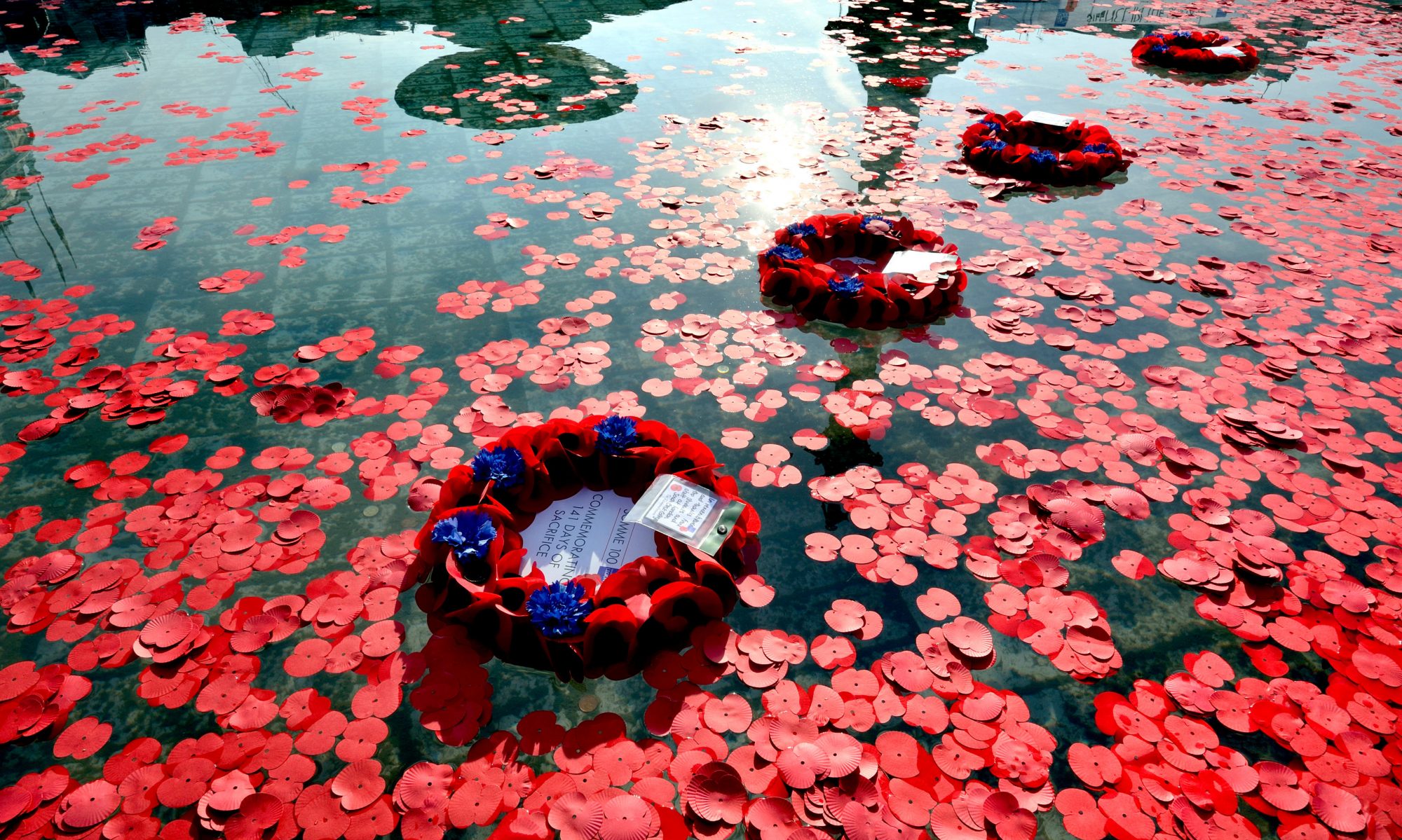By Lucy Noakes
Since 2014, Britain has been participating in one of the largest public history projects the country has ever seen. As we pass Remembrance Sunday, 2017, we come another year closer to the end of the cycle of events that has marked the centenary of the First World War in Britain. The war and its aftermath have been widely remembered and commemorated across the country. Artworks such as Blood Swept Lands and Seas of Red, the installation of 888,246 ceramic poppies, each commemorating one British or colonial serviceman (or woman) killed in the war, and major museum displays, most notably the Imperial War Museum London’s re-imagined First World War galleries, have attracted many thousands of visitors. On the 1 July 2016 more than 1400 volunteers took part in Jeremy Deller’s We’re here because we’re here, appearing in a range of locations across the UK in First World War uniform; a living reminder of the almost 20,000 men killed on the first day of the Battle of the Somme one hundred years previously. The BBC have employed panels of historians to advise on their programming through the World War One at Home project, and multiple academic conferences have brought together scholars to analyse the war, and share new perspectives.
But the war has also been remembered and commemorated at a local, community level. Activities marking the centenary have been widespread, geographically diverse and wide ranging, both in the areas that they examine, and the means by which they have marked the impact of war. In Portsmouth, the King’s Theatre worked with academic researchers, local schoolchildren, adult volunteers and actors to rediscover and produce ‘lost plays’ of the First World War. In Birmingham, an exhibition at Birmingham’s Museum and Art Gallery told the story of Muslims in the First World War, collecting together artefacts and the stories of descendants to tell this little known history. In Coventry, a football match between teams of women from the city’s munitions factories was re-enacted. In Killyleagh, Northern Ireland, communities came together to consider the impact of the war on the town through exhibitions, walking tours and a website, and in Glasgow refugees and asylum seekers explored the experiences of the thousands of Belgian refugees who made their homes in Britain during the war. Through the Heritage Lottery Fund, over 1,800 centenary projects around the country have been supported with over £90 million worth of funding since 2010.
On 11 November 2017 the Reflections on the First World War project launched a major online survey which aims to capture for future generations both the range of projects that have been created, and their wider impact on British society in the early 21st century. Who has participated in these projects? Which groups have come together to research and create them? Have participants benefitted from their participation, for example through learning new skills, or meeting a new group of people? Has the centenary extended our knowledge of the wear, or changed the way that we think about it? If you have participated in a project, visited a museum exhibition or artwork commemorating the war, or indeed have remained untouched by any of the events taking place, the survey is your opportunity to record your experiences and views of the centenary. You will be directly contributing to a better understanding of the co-production of research for all those who wish to engage in historical commemoration in the future. To take part, please follow this link.
